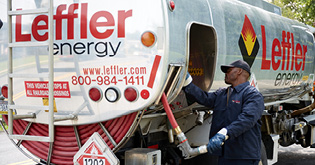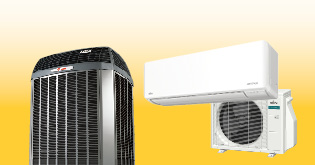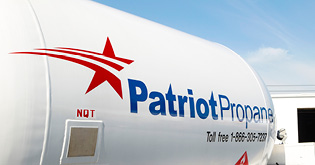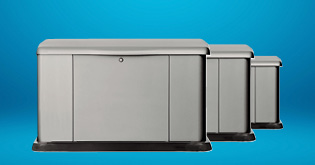- My Account:
- Sign In
- Register
- Make A Payment
Articles.
Below are the categories for any articles that are published on our website. You can find articles on topics ranging from heating oil, propane, heating equipment, cooling, generators and much, much more. Our Home section also contains important tips, insightful facts and helpful how-to guides on lots of topics about everything from home generators to important safety tips for taking care of your home and family. We also update our Featured Articles section with our newest and most relevant seasonal content to help you with your home services throughout the year. Check them out below...
Featured articles.
Energy-efficient air conditioning systems – why you need one now!
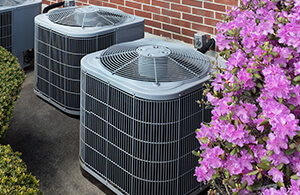 Where we live, we all need AC to keep us comfortable during the summer months. However, what we’re not comfortable with is how much it can cost to run the AC system, with expensive energy costs all summer long!
Where we live, we all need AC to keep us comfortable during the summer months. However, what we’re not comfortable with is how much it can cost to run the AC system, with expensive energy costs all summer long!
We’ve put together this guide, detailing all the benefits of getting a new, energy-efficient central air or ductless AC system. Benefits that go way beyond the higher summer energy bills!
Benefits of installing an energy-efficient AC system.
Lowering energy usage.
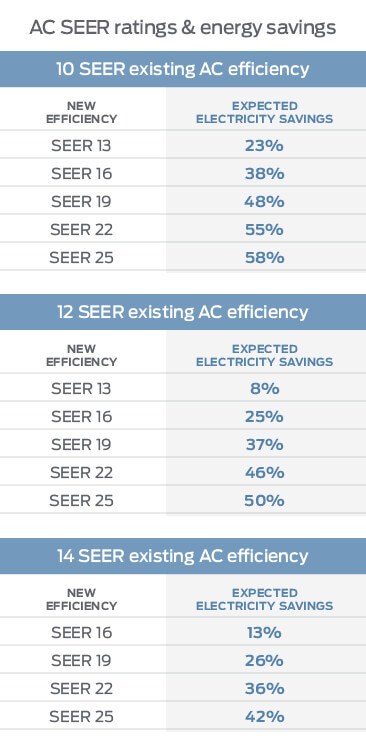
If you have a 20-year-old air conditioning system, it could be using up to 6 kWh of electricity to cool an average-sized house. Thanks to the latest technologies, a new energy-efficient AC system could be cooling the same house using as little as 1.71 kWh of electricity. These energy-saving benefits are thanks to a newer AC system’s SEER rating.
SEER is an acronym for Seasonal Energy Efficiency Ratio, a number that indicates how much electricity is required to remove a given amount of heat from an indoor space. The higher the SEER number, the more efficient your AC system will be.
As of 2015, the minimum rating for new air conditioning systems is 13 SEER in northern states and 14 SEER in the south. The most efficient systems have SEER ratings as high as 25. Older AC systems with SEER ratings of 10 and under are still in operation today. But, after a decade or two of home cooling service, these systems are more likely to run at a lower SEER efficiency.
You can use the chart on the side to learn your estimated electricity savings by getting one of the latest, higher SEER-rated AC systems.
Quieter performance – The new compressor technology and fan-blade shape help the latest AC systems generate only 68 decibels of sound. That’s about 1/20th of the noise generated by an older system.
Going green – A refrigerant called R410A has replaced the once-standard R22, an ozone-depleting refrigerant that has been phased out of production. A lot of older AC systems still run on R22 refrigerant, so if yours develops a leak, it’s time to upgrade to a system using R410A.
IMPORTANT – Even new, energy-efficient systems MUST be properly sized!

Even if you install the latest AC system with the best SEER ratings and refrigerant, if it isn’t sized correctly, you will not maximize its efficiency.
- An oversized AC system results in shorter cycles that prevent proper dehumidification, making your house feel cool but clammy.
- An undersized AC system makes it overwork to cool the space, potentially causing premature wear and tear, overheating and a not-very-cool house on hot summer days.
However, proper AC sizing is about more than square footage. Ceiling height, home layout, air leakage, sun exposure, interior heat gain, and climate are all factors in determining the ideal AC size for your living space. It’s always best to have an AC professional come to your home for a consult to determine the best and most properly sized AC system for your home.

